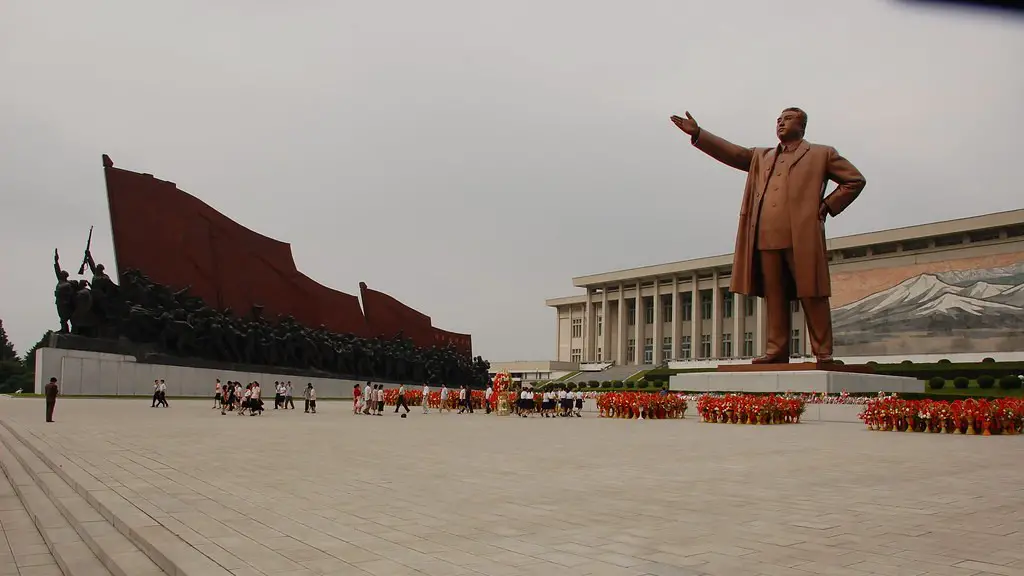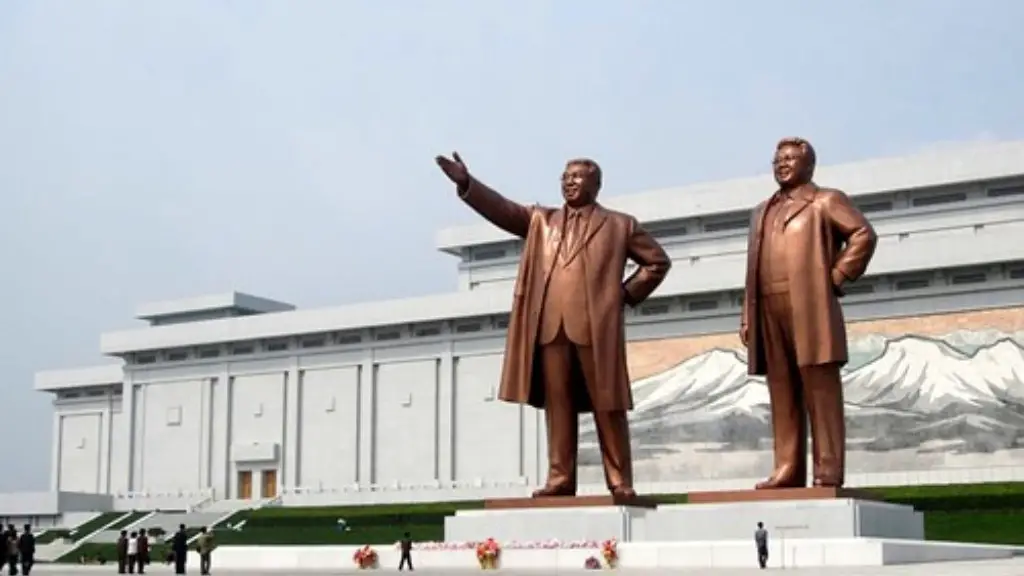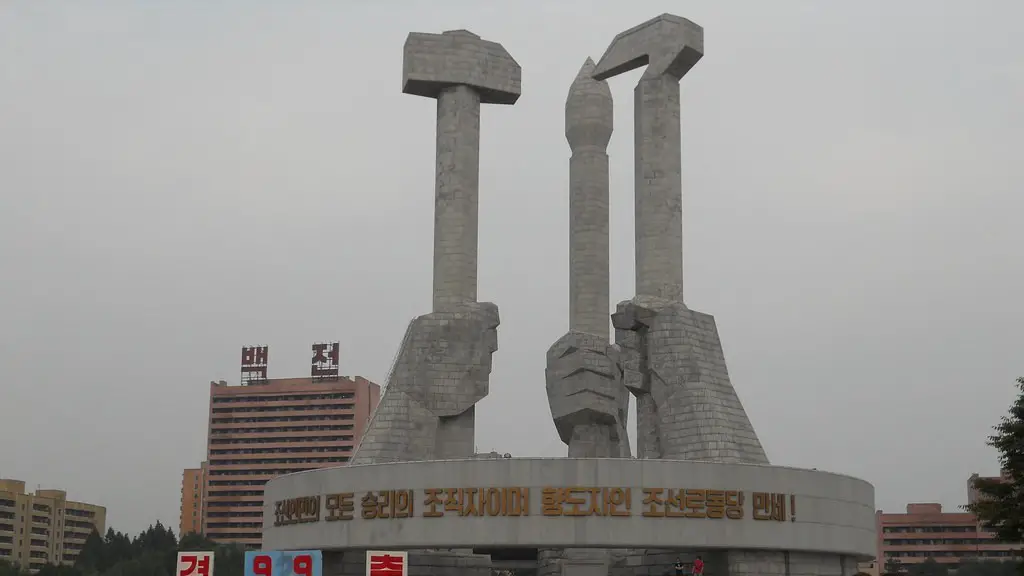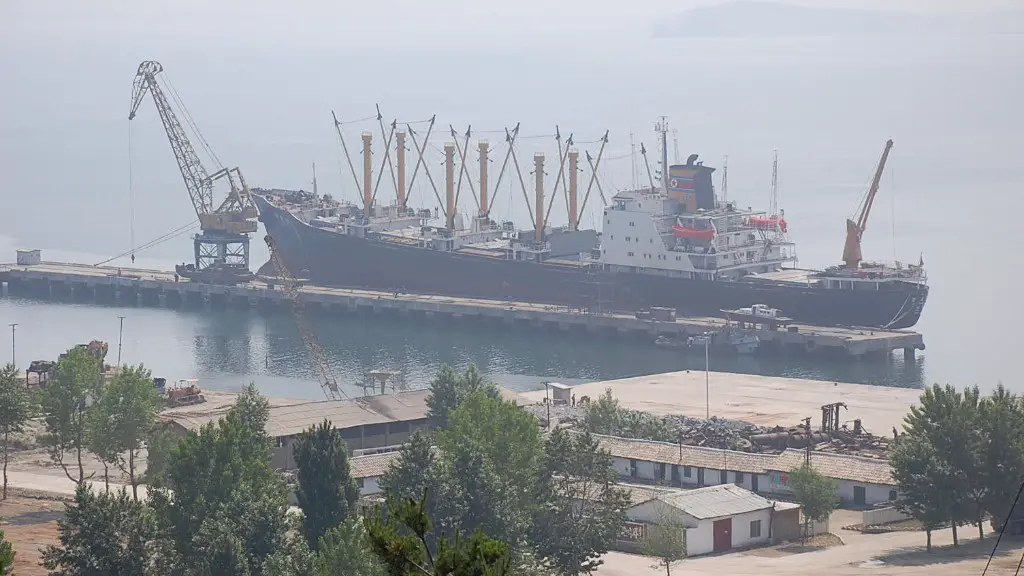The idea of destroying North Korea is an emotional and contentious debate. There are pros and cons to this idea that should be weighed carefully before making a decisive decision. On the one hand, some view the country as an oppressive and dangerous regime that must be eliminated in order to protect the world from its potential instability and aggression. On the other hand, there are people who see North Korea as an important part of the global balance of power, one which could be destabilized by its destruction. In order to adequately explore the topic of whether North Korea should be destroyed, a balanced examination of the available evidence and perspectives from both sides must be conducted.
The North Korean regime is often labeled as an oppressive dictatorship, with a long history of human rights violations and disregard for international law. The country is ruled by an authoritarian government that severely restricts the freedom of its citizens and has been condemned by many nations around the world. North Korea has repeatedly tested nuclear weapons, prompting fears of aggression. Furthermore, the regime has been accused of being highly hostile and belligerent towards neighboring countries, most notably South Korea and Japan.
On the other hand, there are those who believe that destroying North Korea would have a negative impact on the global balance of power. The collapse of the North Korean regime would create a power vacuum in the region, potentially leading to increased tension and conflict between other powers. Additionally, it could have devastating economic and social impacts on the region, as North Korea remains an economically isolated state with limited access to resources. Thus, a destabilized North Korea could have catastrophic consequences.
Experts in the field overwhelmingly agree that eliminating North Korea would not be beneficial in the long-term, and such a measure would be counter-productive. Instead, they suggest that diplomatic efforts should be used to reach a negotiated settlement that would ensure the security of the region. Offering economic incentives to North Korea to reduce their nuclear capabilities and ending their hostile behavior could be a potential option.
Furthermore, expressing support for North Korean citizens and supporting civil society organizations that could provide human rights education and promote democracy in the country should be considered. Such measures could bring about meaningful changes in the country and possibly lead to the dismantling of the regime in a more constructive way.
The biggest problem with the idea of destroying North Korea is that it could potentially cause more harm than good. It could spark a regional conflict and have disastrous economic repercussions. There is also a risk that it could lead to the rise of an even more oppressive regime. Thus, the discussion should shift to finding alternative ways to resolve the situation and building international consensus.
Economic Incentives
Offering economic incentives to North Korea has been suggested as one way to entice the country to reduce its nuclear capabilities and hostile behavior. North Korea is notoriously despotic and economically isolated, and economic incentives may help to introduce elements of a market economy and gradually liberalize the country. Such incentives could include providing access to international financial markets, investing in transportation infrastructure, and developing a better legal framework for facilitating foreign trade and investment.
However, it is important to keep in mind that economic incentives alone are not enough. North Korea has a long history of disregarding international norms, and economic incentives could be used as a way to simply buy time while the regime continues its pursuit of nuclear weapons. In addition, increased economic engagement could bring more resources to the regime, and it could use those resources to strengthen its oppressive apparatus.
Thus, economic incentives should be accompanied by other measures, such as diplomatic negotiations and targeted sanctions, in order to more effectively contain the threat posed by North Korea and ultimately bring about real change.
Sanctioning North Korea
Imposing targeted sanctions on North Korea has been suggested as a way to encourage the regime to cease its nuclear development program and hostile behavior. Such sanctions could include cutting off access to international financial markets, restricting trade, and preventing entities from engaging in certain activities. Such measures could also seek to prevent the regime from obtaining resources and technology needed for its nuclear and military programs.
However, targeted sanctions have proven to be difficult to enforce, as many countries are reluctant to enforce them. Furthermore, such measures could have devastating economic and social impacts on North Korean citizens, who are already suffering under a repressive regime. Therefore, while targeted sanctions should be discussed as an option, their effectiveness should be weighed against the potential harm that could be inflicted on innocent North Korean civilians.
In addition to targeted sanctions, there are also the potential for comprehensive international sanctions, which could be particularly effective in limiting North Korea’s abilities to obtain resources for its nuclear and military programs. Comprehensive international sanctions could involve cutting off certain industries and limiting the country’s access to resources, such as fuel and electricity, which could be particularly effective in slowing down or even halting the regime’s nuclear capabilities.
Engaging North Korea
Engaging North Korea politically is another approach that has been suggested as a way to bring about lasting change in the country. Engagement with the regime could include diplomatic negotiations aimed at persuading the government to end its nuclear development program, reduce its military buildup, and implement meaningful reforms to democratize the country. Thus, engaging North Korea diplomatically could pave the way to a peaceful resolution of the current situation and bring about meaningful change.
However, it is important to note that engaging North Korea diplomatically comes with its own set of challenges. Many countries have tried and failed to engage the country in dialogue. Additionally, North Korea may simply use diplomatic negotiations as a way to buy time while it continues its pursuit of nuclear weapons. Thus, it is important to make sure that any negotiations or agreements that are made are properly monitored and enforced.
Furthermore, engaging North Korea politically should be done in conjunction with other measures, such as economic incentives and targeted sanctions. These measures could bring about real changes in the North Korean regime and create conditions for a more open and constructive dialogue.
Engaging North Korean Citizens
Finally, expressing sympathy and support for the North Korean people is another way to push for meaningful change in the country. Many North Korean citizens have suffered under the repressive regime and are forced to live in economic isolation. Supporting civil society organizations that could offer education, healthcare, and other basic necessities could be a way to help the North Korean citizens and create more favorable conditions for a peaceful transition.
Furthermore, it is important to remember that the people of North Korea have limited access to information and often lack agency. Therefore, providing access to news and information from outside the country could help to raise awareness and empower the citizens to push for their own political, economic, and social liberation. Expressing sympathy and offering support may also encourage North Korean leadership to soften their stance and pursue a peaceful resolution.
International Pressure
Applying international pressure is another viable option for dealing with North Korea’s threat. Applying pressure could include increasing diplomatic efforts to reach a negotiated settlement and pursuing sanctions for specific violations of international law. Such measures could be effective in pressuring the North Korean regime to cease its aggressive behavior and reduce its nuclear capabilities.
In addition, some have suggested that the United Nations and other international organizations should build a diplomatic consensus to create a sustainable and viable pathway for North Korea’s denuclearization. Building international consensus would involve convincing other countries to apply pressure on North Korea and agree on a unified response to the crisis. This could ultimately lead to a more unified approach and greater success in achieving a peaceful resolution.
However, it is important to note that applying international pressure can be difficult, as many countries are reluctant to take action. Additionally, many countries are wary of provoking North Korea, which could lead to increased military tensions. Thus, it is important to weigh the potential consequences of such measures before implementing them.
Organizing International Support
In addition to applying diplomatic and economic pressure, organizing international support for North Korean citizens is another way to help bring about real change in the country. Such efforts could involve supporting human rights education and providing aid to civil society organizations that could help to raise awareness and empower North Korean citizens.
Organizing international support could also involve engaging with religious organizations and encouraging them to advocate for human rights and political freedom in the country. Additionally, it could involve engaging with the media to draw more attention to the situation and ensuring accurate and up-to-date information is available to the public.
However, it is important to keep in mind that such efforts could be difficult to implement, as North Korea has strictly enforced censorship and limits access to information from outside the country. Thus, a multi-faceted approach is required in order to ensure that the international community’s messages and support can reach the North Korean people.
Identifying Alternatives
Finally, it is important to identify alternative strategies for addressing the situation in North Korea. Many have suggested that the best way to achieve a peaceful resolution is through a combination of diplomatic efforts and economic incentives. Such measures could be more effective in bringing about meaningful changes in the country and promoting economic and social development.
In addition, identifying alternative means of energy production in North Korea could help to reduce the economic and political dependence of the regime on other countries. Further research into renewable and alternative energy sources could help to develop viable energy options for the country and reduce the risk of it becoming a source of regional instability.
Finally, it is important to remember that any long-term solution for North Korea must be based on cooperation and dialogue among the major players in the region, including North and South Korea, Japan, China, and the United States. Such a dialogue should be aimed at identifying mutually beneficial solutions that could bring about lasting changes and create a peaceable resolution to the conflict.





